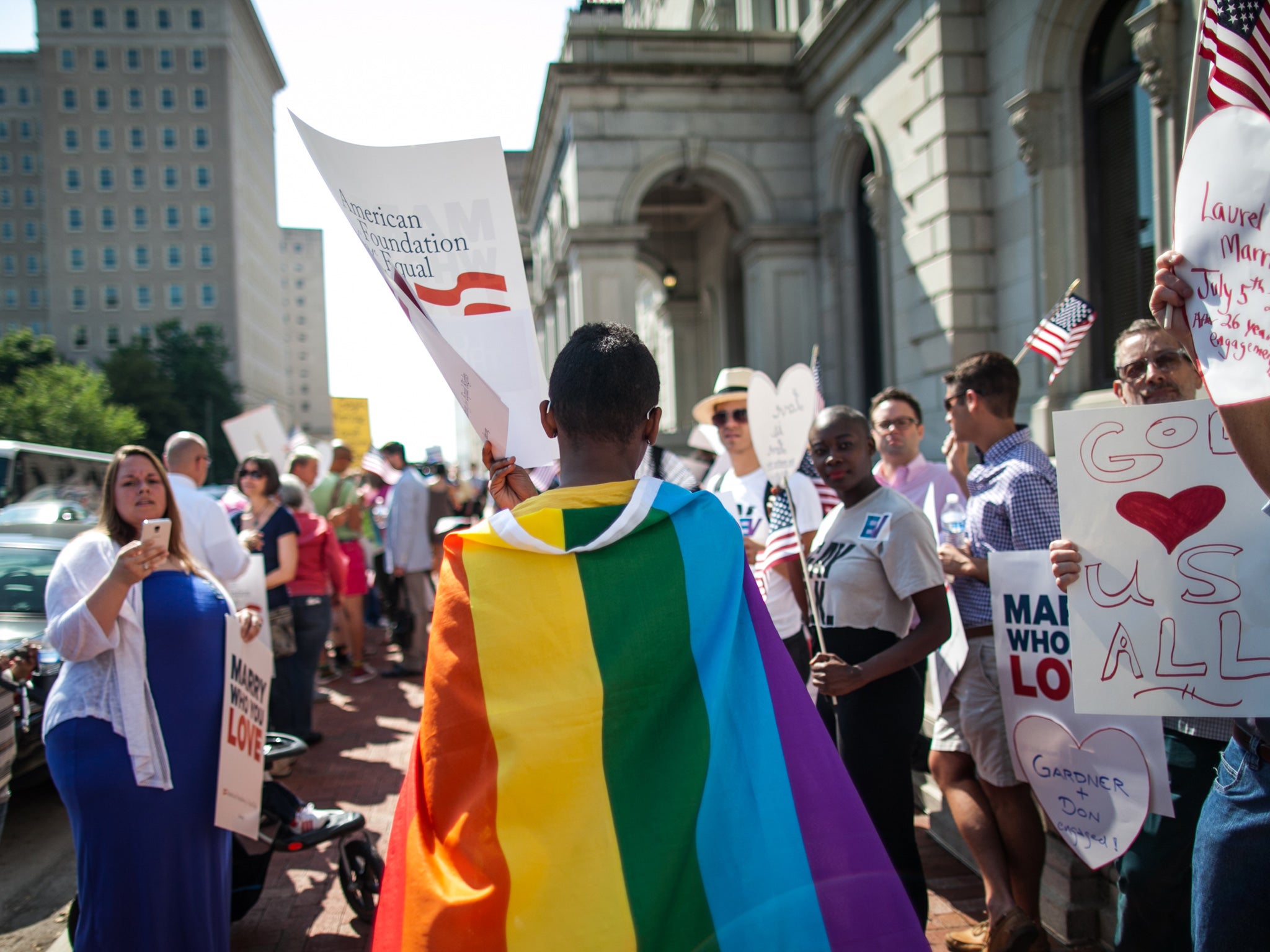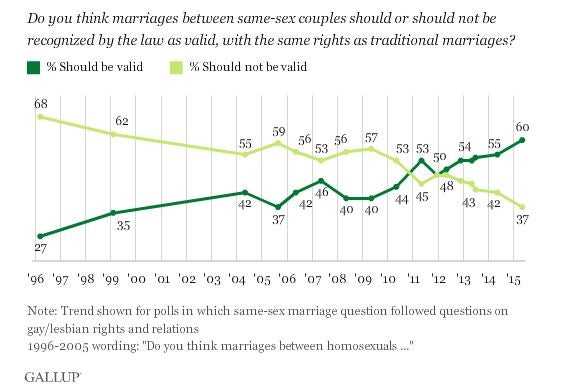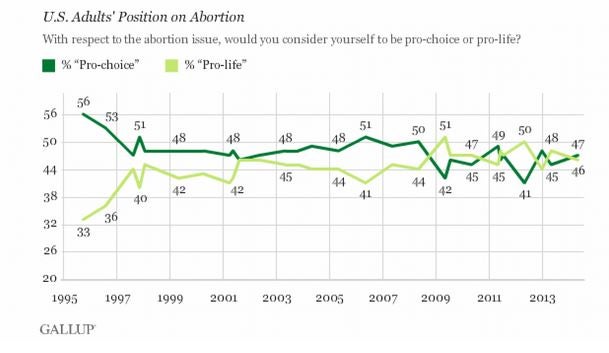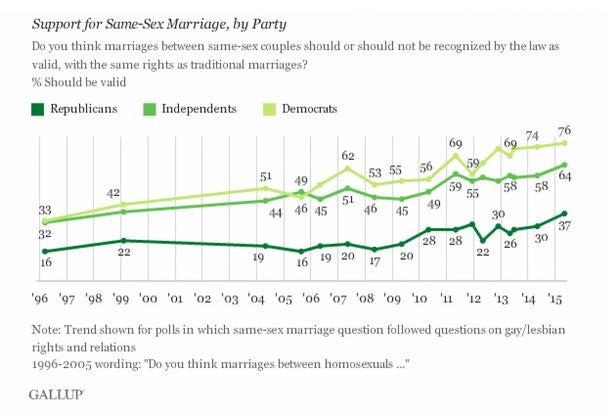Same-sex marriage: 1 chart that shows the astonishing rise of support in the US
'This is an unprecedented shift. In 20 years it won't even be an issue.'

Your support helps us to tell the story
From reproductive rights to climate change to Big Tech, The Independent is on the ground when the story is developing. Whether it's investigating the financials of Elon Musk's pro-Trump PAC or producing our latest documentary, 'The A Word', which shines a light on the American women fighting for reproductive rights, we know how important it is to parse out the facts from the messaging.
At such a critical moment in US history, we need reporters on the ground. Your donation allows us to keep sending journalists to speak to both sides of the story.
The Independent is trusted by Americans across the entire political spectrum. And unlike many other quality news outlets, we choose not to lock Americans out of our reporting and analysis with paywalls. We believe quality journalism should be available to everyone, paid for by those who can afford it.
Your support makes all the difference.I've spent the last 17 years of my life thinking about, reading about and writing about politics. And never in that almost two decades -- gulp -- have I seen a trend line like the one below.
The chart is taken from Gallup's 2015 "Values and Beliefs" poll, which was conducted earlier this month. It shows support for gay marriage at 60 percent, the highest Gallup has measured in its 19 years of asking the question and a bump upwards of five points from the 2014 finding.

To me, the most remarkable thing about the Gallup chart is to compare 2005 and 2015. In 2005, just 37 percent of the public said that gay marriages should be recognized by law as "valid, with the same rights as traditional marriages." Today, that number is 23 points higher.
That sort of movement in the relatively short time of a decade would be amazing no matter what. But, it's particularly eye-opening given that it comes on a social issue on which, typically, movement is slow if it comes at all.
Take abortion. Here's Gallup's long term trend on abortion from its 2014 "Values and Beliefs" poll.

Yes, the numbers have moved a bit over the past decade -- more people described themselves as "pro life" in 2014 than in 2005 -- but the numbers are within the survey's margin of error or very close to it.
Or the death penalty. Again, Gallup.
The lack of major movement on the death penalty and abortion are in keeping with the belief that on deeply-held and oftentimes very personal matters, public opinion moves slowly and is rarely affected by external events.
So, what explains the unprecedented movement on gay marriage? I put that question to two of the smartest pollsters in the business -- Glen Bolger of the Republican firm Public Opinion Strategies and Fred Yang of the Democratic shop Garin-Hart-Yang Research.
"I think the shift is because as more and more gays came out of the closet, people realized they know gays personally, and that makes a huge difference in attitudes," said Bolger. "Once Americans became comfortable with gays on a personal level, it became easier to reconcile their opinions toward gays, and shift on gay marriage."
Yang largely agreed although he gave credit to President Obama for embracing same-sex marriage during his 2012 reelection campaign too.
He also noted that the change within Republican circles toward gay marriage was particularly striking. In 2013, 27 percent of Republicans supported gay marriage in the NBC-Wall Street Journal poll, Yang noted. By March 2015, that number was up to 40 percent. Those party numbers are mirrored in the Gallup data.

"Same sex marriage seems headed in the same glide path as interracial marriage, where support today is at a near-unanimous 87 percent in Gallup polling," said Yang. "But in looking at the Gallup trend, it took roughly a quarter of a century for interracial marriage to achieve the support gay marriage receives today."
Bolger agreed. "This is an unprecedented shift in public opinion. In 20 years it won't even be an issue."
Copyright Washington Post
Join our commenting forum
Join thought-provoking conversations, follow other Independent readers and see their replies
Comments